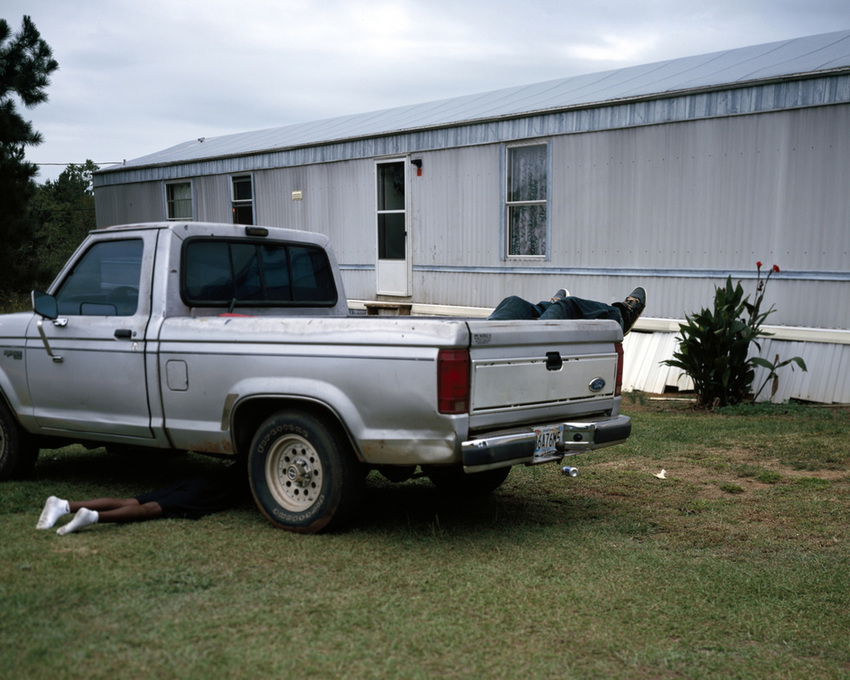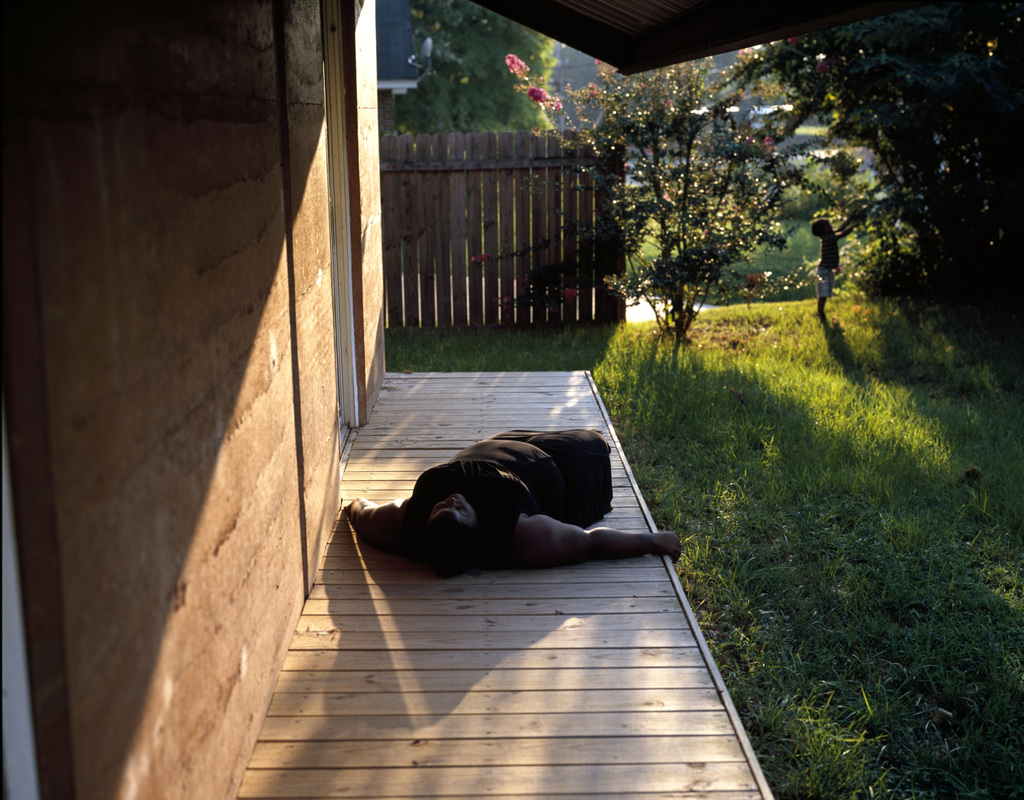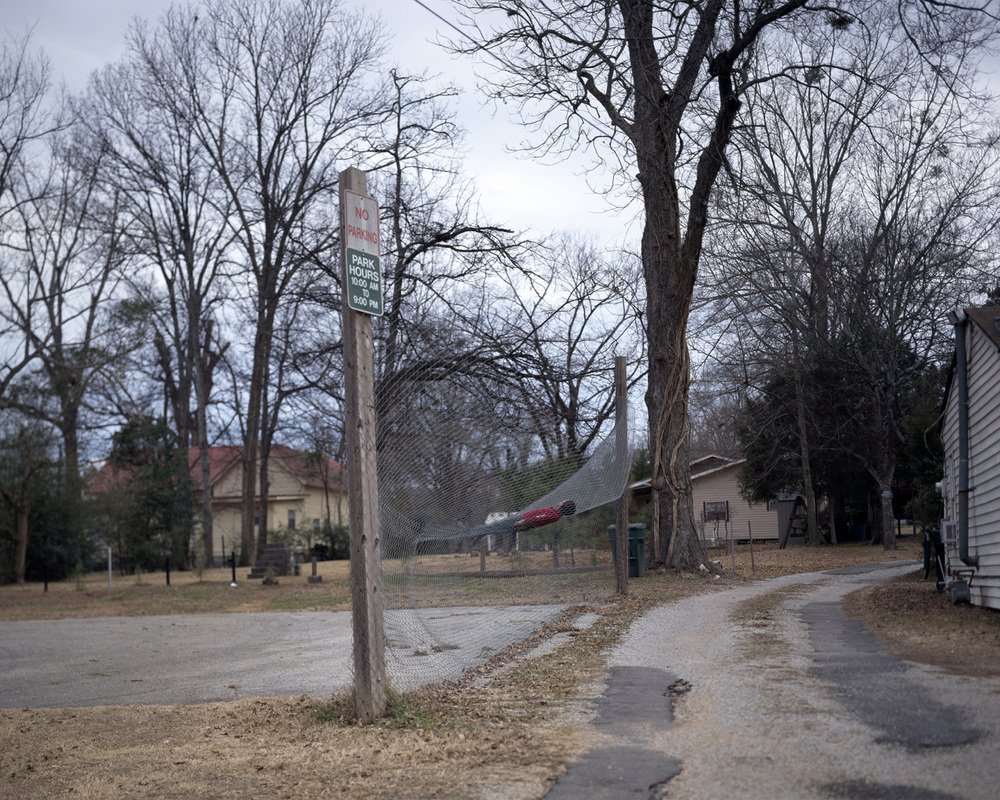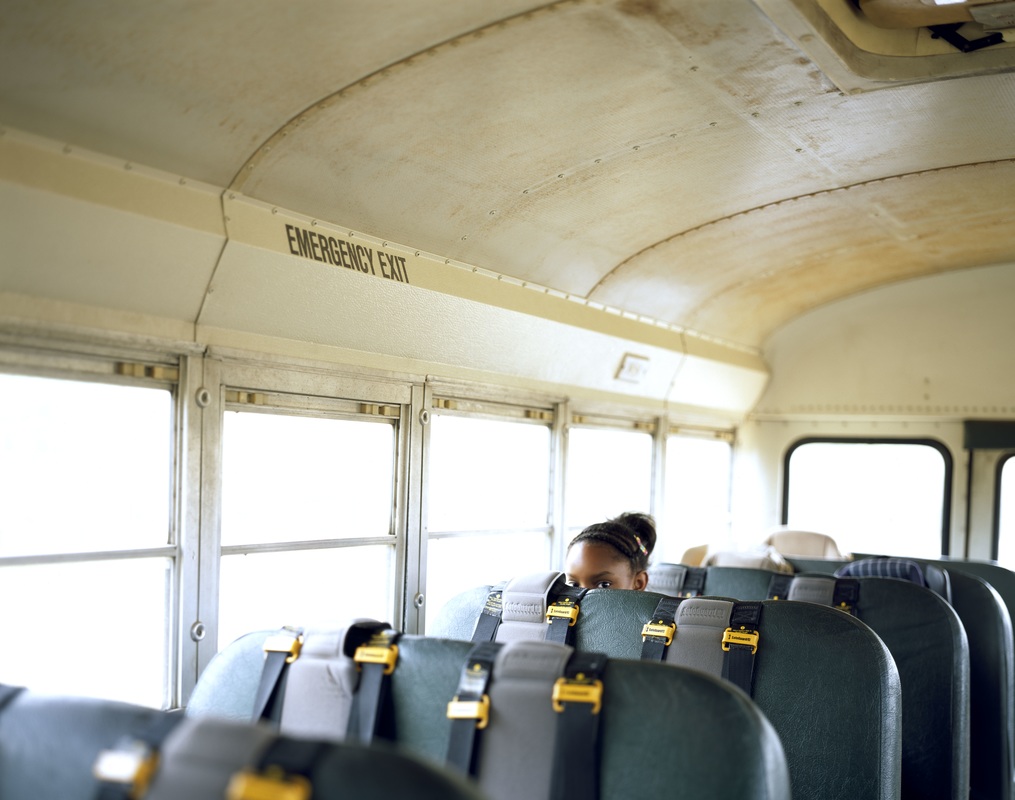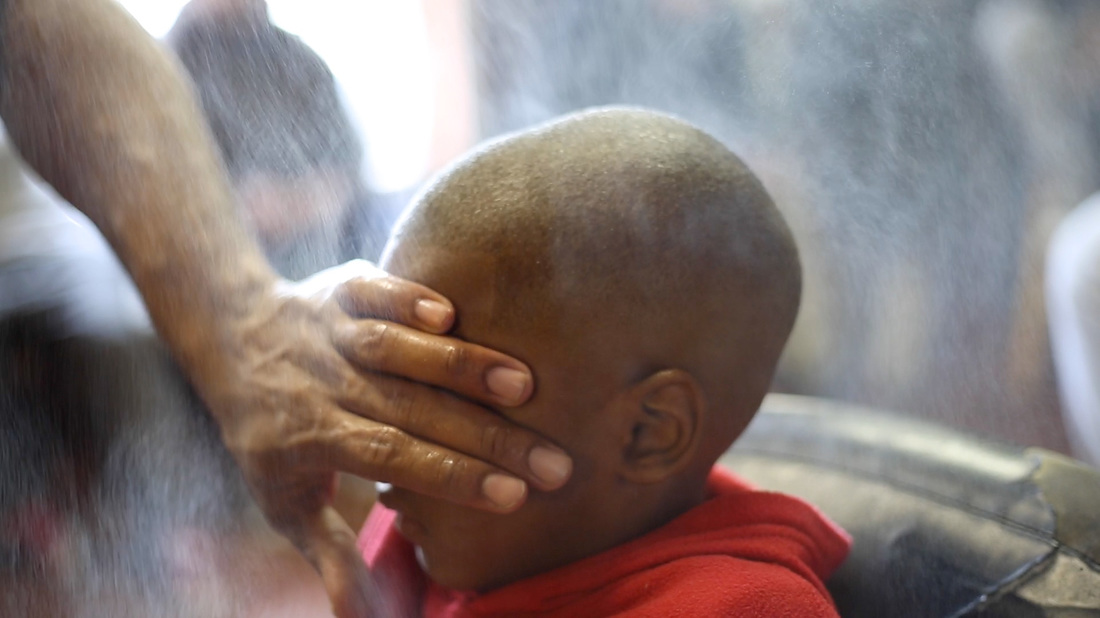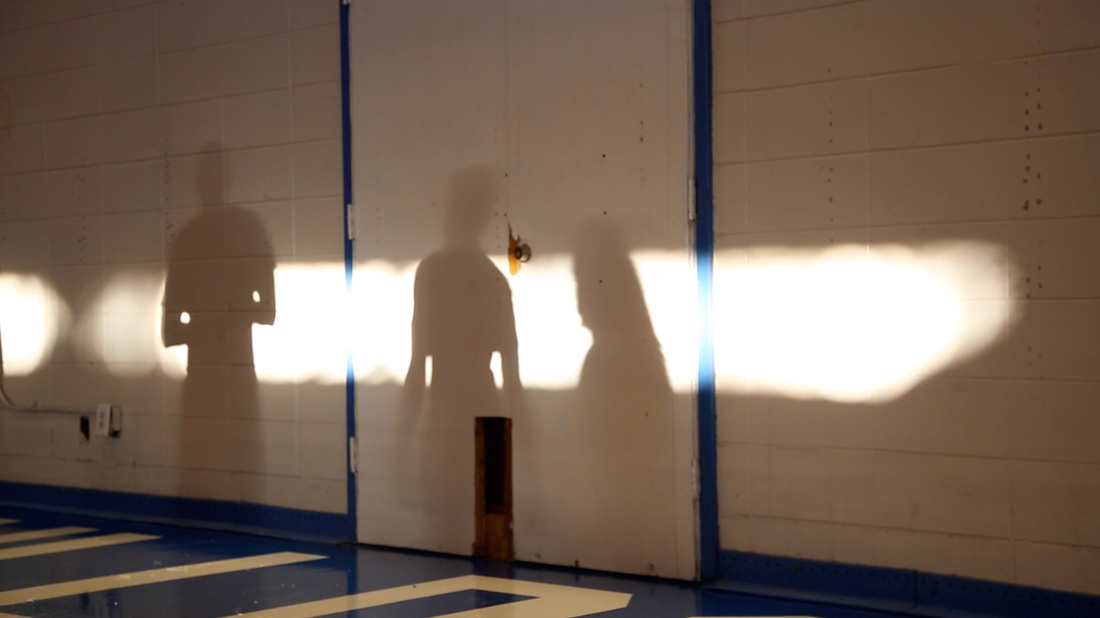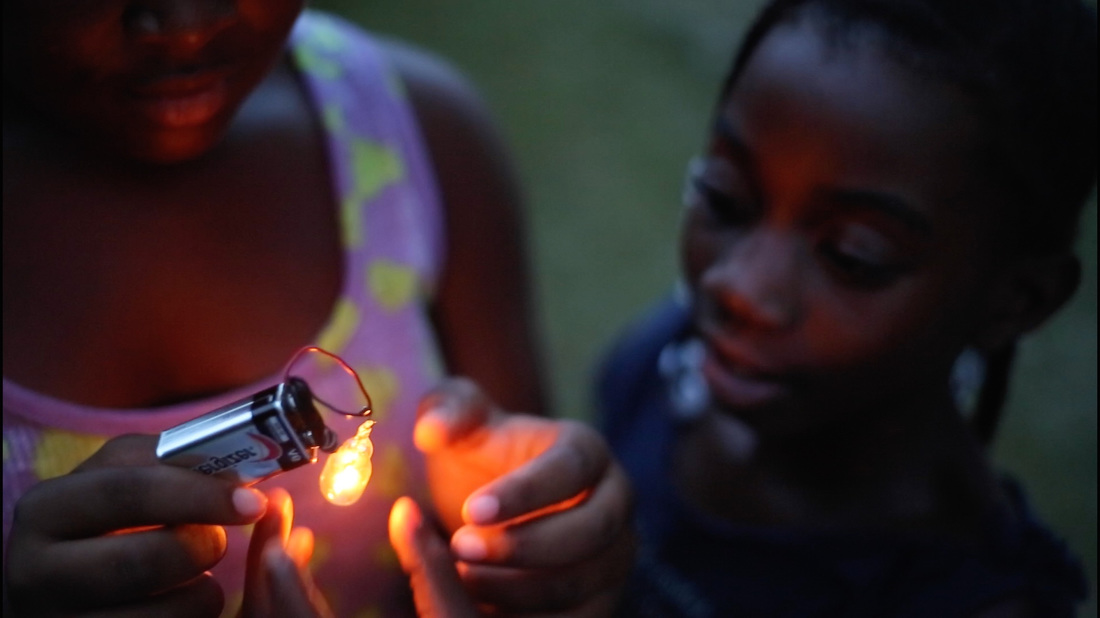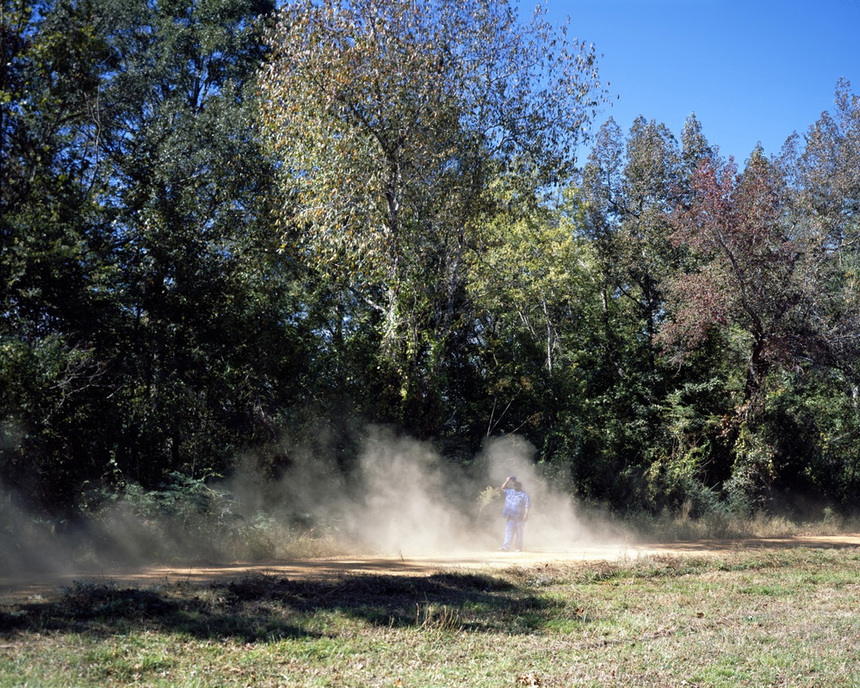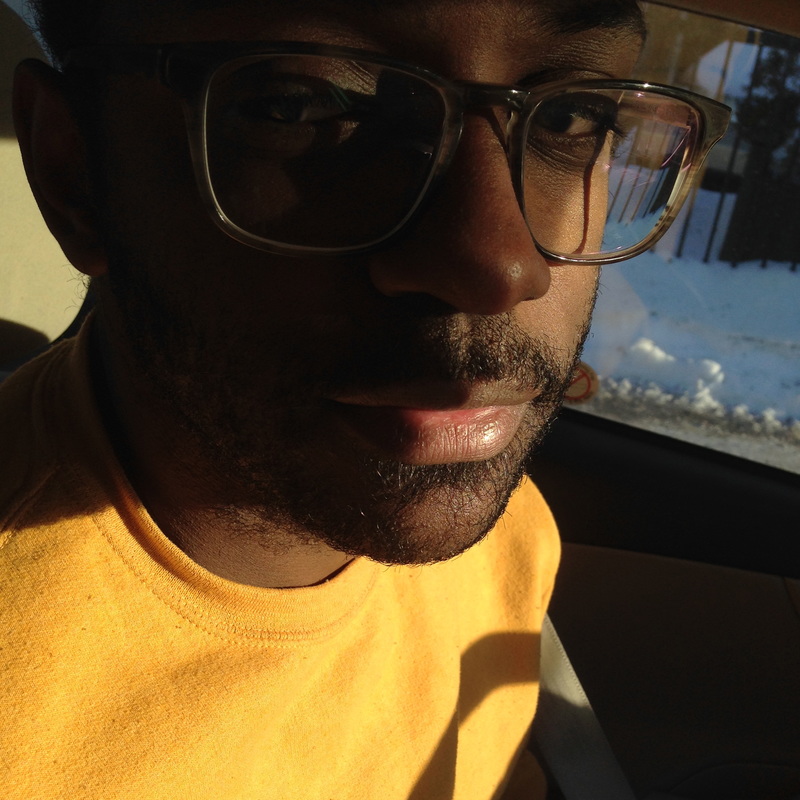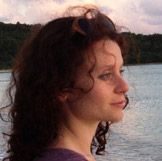VISUAL ART + INTERVIEW
Going to Meet RaMell Ross
♦
An interview with RAMELL ROSS by IRINA ROZOVSKY | Edited by ABBY SUN
Brothers Z, 2012
RaMell Ross is an artist and writer who has been working in Alabama for the last 7 years, sculpting a sense of place that is as much a personalized fiction as it is an objective reality. Gently, thoughtfully, and poetically Ross is sidestepping clichés and breathing new life into the image of the south that has stubbornly taken root in our collective eye. Below, RaMell discusses his series of photographs South County, AL and his current film project Idiom; Hale County This Morning, This Evening. RaMell is the recipient of a production grant from the Sundance Institute, the Garrett Scott Documentary Development Grant and is currently working on the film while an artist in residence in the Social Computing Group at the MIT Media Lab.
-Irina Rozovsky
Dakesha and Marquise, 2012
Irina Rozovsky: Can you tell me how you went about making the images and shaping your series South County, AL? Is this project complete?
RaMell Ross: Well, the South is a distractingly storied and romantic place, and it took sometime to organically build a relationship with people, the landscape and its ghosts. I moved to and started working in Hale County, AL in 2009 but didn't take the first image contributing to this series, Dakesha and Marquise, until 2012. I guess I spent the first 3 years battling the temptation of platitudes. Most of the images were taken in the brook of my everyday activities. I'd keep my 4x5 camera loaded with some unforgiving slide film and wait for observation to slip into day dreaming, and if it did just right, through the threshold of the subconscious, I'd set up the camera and start to work out the nuances. The series is still in progress and as I consider and approach each image as an individual work, it takes some time for the alignment of a bunch of variables to make a series contributing piece.
Dream Catcher, 2014
IR: What helped you to win the three year battle with platitudes? What were the ready formed, familiar images that you brought with you to Alabama, and how did you break from them towards an imagery that felt wholly original?
RR: Oh we’re still battling. It’s constant and not a traditional fight but a hardy conversation. Early on I engaged their beauty and familiarity and slowly noticed that the comfort they afforded was secretly trying to convince me they had substance beyond the obvious. Once in dialogue with those sticky, gorgeous platitudes I realized you can use their cultural currency and language as you want. That they want to be more. A little psychoanalysis never hurt a platitude. They always caution: without familiarity, nothing is recognizable. The break into what I felt was imagery less bogged down by easy reading came through experimentation spurred by a mounting urgency I felt living in Hale County, Alabama: the South is in dire need of reimagining. I mean, you know Irina, you're a reimagine machine. My face did all sorts of involuntary things when I saw the images you made in Israel. I bet you'd turn the Alabama South into a pop-up Sci-fi.
Here, 2013
IR: I’m curious about your personal experience in the storied south and how it rubbed off on your photographs. Did you seek to become a part of its fabric or remain a compassionate outsider? Did the prestigious college education you received prior help you make work or in any way set you apart from your subject?
RR: Gosh, how does one truly account for the handiwork of experience? Its contributing ingredients to the mind, how more of him and less of that react to the other fixings in our brain’s stew. As my images are typically of those I know well, my construction of them and our shared experiences are distilled into the light of a daydream that manifests an image. In new form, they become abstract markers for me within the frame, where those memories and thoughts can have that visual scratch and sniff quality. The images are so loaded to me. Thinking back, it all seems so clear and strategic but that’s just hindsight logic. Moving there I didn’t set out for anything in particular, just doing a variety of strokes in my life’s stream, wondering if I could help some people stay afloat and learn a thing or two in old waters.
Idiom... Film Still at 3:33 secs
I didn’t realize education was such a privilege until I had one. Realizing then that a great education is a secular blessing. Even though I got there because of sports, I’d shortly be offered a skeleton key to the world of opportunity built behind locked doors. Those in my images and I are different in that I was raised in a community where, somehow or other, everybody had these keys. Alternately, they are raised in a community where not only do most not have keys, not so long ago, everybody had shackles. In essence the images are about this relationship, my projection, my insider-outsiderness, my looking at a geographic location familiar and partially my home that I read about first, yet have come to know better than those books.
Idiom... Film Still at 17:45 secs
IR: I had the pleasure of sneak-peaking your film. It felt like you were recalling your earlier still images and connecting them with a loose narrative thread. It’s a very poignant, photographic way of storytelling that breaks from traditional non-fiction or documentary filmmaking. What is the story you are telling? How much are you a director of your subjects, versus an observer
RR: True Irina. Idiom; Hale County This Morning, This Evening is its own thing. It aims not to tell a story but to offer an experience of the Historic South through the lives of the main characters. I don’t direct a thing though as of yet, I’ve set up one shot. I just follow the two protagonist Daniel Collins and Quincy Bryant and curate with tweezers. It’s film as poem as life.
Idiom... Film Still at 24:20 secs
IR: Does photography pale in comparison to what’s possible with the moving image?
RR: I don’t think it pales in comparison but know it’s silent and can’t time travel.
Idiom... Film Still at 24:44 secs
IR: When I was in grad school I often felt pigeon holed by my teachers and peers. It seemed that because I was a Russian immigrant it was somehow my responsibility to make work about Russia or Russians. Do you ever feel an outside pressure or expectation to make work about the African American experience?
RR: No surprise there. It’s frustrating how that works. Someone needs to write a book inspired by this title: Please Back Away From My Heritage - I’m Its Arbiter and You’re Its Problem. Go Orientalize and Monetize Your Momma.
But yeah, I don’t respond to that pressure or expectation, but to my actual interest to make that work. The pressures though are real and tolling. The dye cast into America’s psyche that held the fallacies of racial difference will not dilute itself. It’s one of the oldest American defaults. I am really sensitive to the hang-ups of African American cultural production but personally just want to see spacious, unsuitcased images of Black people. That being said, I’m just going to focus my personal work on the Alabama South. It needs some postmodern love.
But yeah, I don’t respond to that pressure or expectation, but to my actual interest to make that work. The pressures though are real and tolling. The dye cast into America’s psyche that held the fallacies of racial difference will not dilute itself. It’s one of the oldest American defaults. I am really sensitive to the hang-ups of African American cultural production but personally just want to see spacious, unsuitcased images of Black people. That being said, I’m just going to focus my personal work on the Alabama South. It needs some postmodern love.
Idiom... Film Still at 26:44 secs
IR: Who are your heroes?
RR: While there are so many geniuses that give us pause I can’t stop thinking about the lottery of birth, that subparticle happening that initiates the fate of one’s nationhood, class, and family. Heros, damn Irina, I dunno. It varies per mood, per meal. I really marvel at each participant of reality.
Ron, 2013
